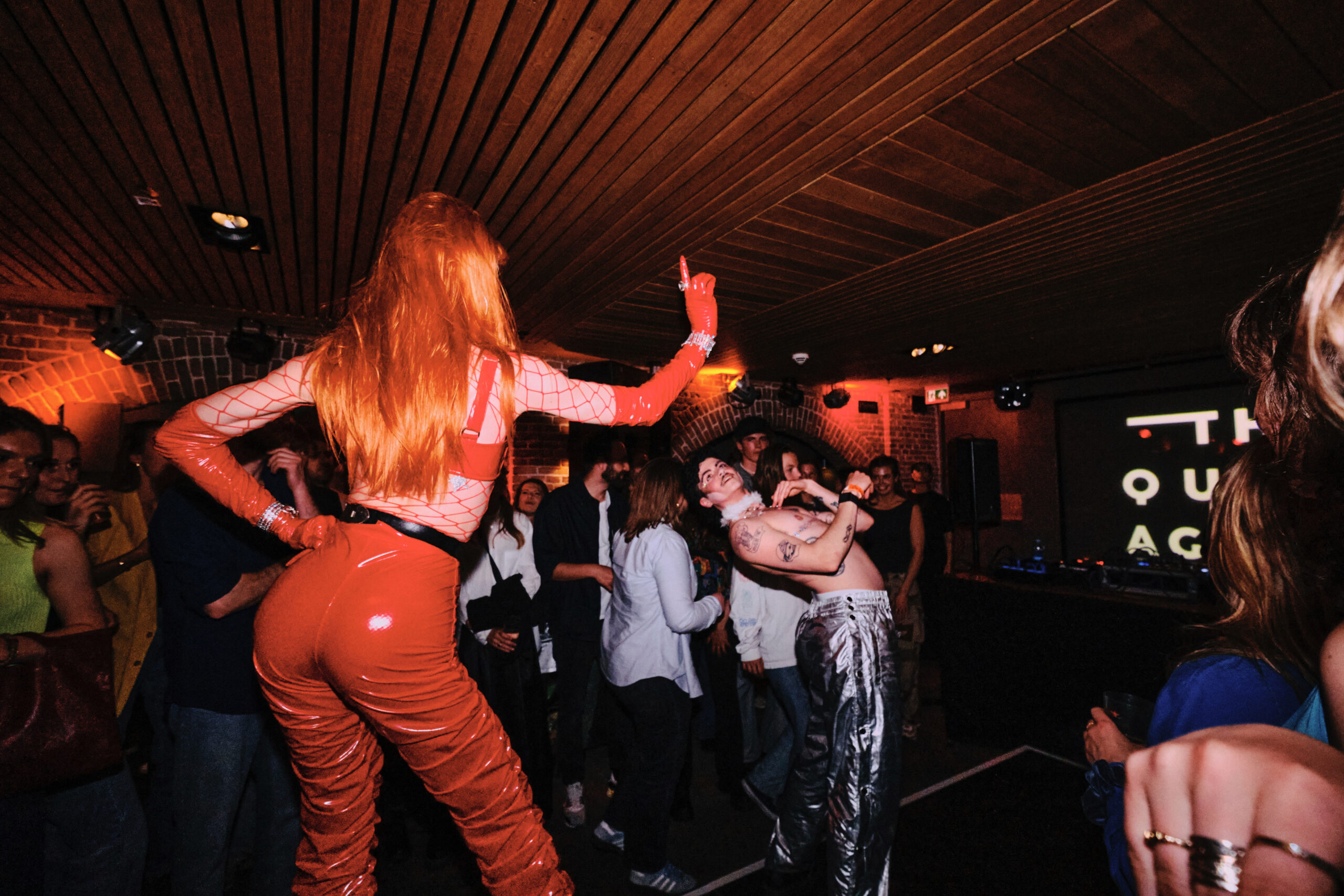Jochem Jordaan and Dylan Ahern encourage youth in the Netherlands to vote through events merging satire, clubbing and activism
Jochem Jordaan looks for “a twinkle in people’s eyes” at the end of his company’s shows, “triggered by the fact that they might now want to go out and vote”.
Jordaan founded De Kiesmannen (“The Electors”), almost by accident with his friend Dylan Ahern when they were both in their early 20s.
“We started in 2017 because Brexit just took place and Trump was elected president in the US, and a lot of data showed that young people did not turn out to the ballot box.”
Dutch general elections were imminent. “Dylan and I thought: we have so many political parties in the Netherlands. A lot of young people are unaware of what choices they have when it comes to voting and what the political parties stand for.”
The pair put on an informal event to educate about “the three Fs: friends, family, and fools” which they advertised on Facebook. 450 people turned up.
The largest theatre in the north of the Netherlands caught wind of the event and asked if they would perform in Groningen in two days.
Neither Jordaan nor Ahern have any acting or stage-writing experience. They met during a master’s course in political science at the University of Amsterdam and both hosted interviews on Room for Discussion, the university’s high-profile political interview platform.
This training quashed any stage fright, but did not fill them with confidence that the show in Groningen would be a success. They were surprised by a theatre full of young faces.
Grants from the Dutch government and the European Commission helped professionalise their activities, but De Kiesmannen retains its playful character.
Sarah Bronkhorst, a journalist, attended one of their shows as a student in Amsterdam in 2019: “They have this great gift of being able to make politics very sexy.”
De Kiesmannen’s shows compare different parties’ programmes and introduce political leaders through performance. Their most recent show did so in the style of Eurovision. They have also parodied the reality TV show First Dates, “because elections are kind of the First Dates as well, in which the citizen is looking for a political match”.
In May, they tried a new format: merging nightlife with political discussion. At a club in Amsterdam, open from 8 pm to 5 am, revellers could move between a variety of rooms: some for partying, others hosting late-night talks with activists speaking on the major themes of June’s European elections.

The average attendee age was 23, a result of the fact that De Kiesmannen targets first- and second-time voters. “Young people have at least 50 to 20 per cent less voter turnout compared to the average,” says Jordaan. “And they also are more likely to fall for authoritarianism.”
The election of far-right politician Geert Wilders’ Party for Freedom in November illustrates Jordaan’s view: “He got more votes from the young than the old.”
According to a report by the European Commission, Dutch youth are also increasingly involved in activism, but less likely to vote in elections. “That is exciting, but I also find that worrying. Voting is still the most impactful part of democracy,” says Jordaan.
De Kiesmannen has an educational programme targeting schools with students who feel most ostracised by the political establishment and are less likely to believe in the impact of their vote. This includes schools with a high number of migrants.
“The feedback we’re receiving shows us that these people are not excited for us to come. [But] after an hour, when they’re seeing we’re chill, we are just encouraging them to talk about politics and listen to what their thoughts and worries are, [then] they’re actually excited to be heard.”
Shows, club nights, and educational programmes combined, De Kiesmannen are reaching tens of thousands of people. Jordaan says that just the day previously, four of them recognised him on the street.
After stumbling across a winning formula to engage young voters, De Kiesmannen could serve as a template for other countries struggling to encourage youth to the ballot box.

Feature image provided by De Kiesmannen

